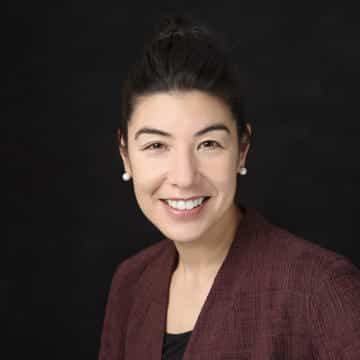How does a pandemic end?
Wednesday 6th Apr 2022, 12.30pm
Masks, social distancing, lockdowns. We’ve become intimately familiar with numerous COVID-19 control measures over the past two years. Now, with most restrictions gone (at least here in England), does that mean that the pandemic is really over? In this episode, we chat to Erica Charters, Professor of the Global History of Medicine at the University of Oxford and Principal Investigator of the ‘How Epidemics End’ interdisciplinary project.
(Music)
Emily Elias: The masks, the hand sanitiser, the anxiety, they’re all starting to slowly disappear as people return to a pre-2020 lifestyle, but is the pandemic really over? On this episode of the Oxford Sparks ‘Big Questions’ podcast, we’re asking how does a pandemic end?
Hello, I’m Emily Elias, and this is the show where we seek out the brightest minds at the University of Oxford and we ask them the big questions. For this episode, we found a researcher with an eye on the past, to help us understand the present.
Erica Charters: My name is Erica Charters and I’m a professor of history. I work specifically on the history of disease, so I’m Professor of the History of Medicine at the University of Oxford.
Emily: You’ve been working on looking at the ending of a pandemic. How do you even start looking at how a pandemic ends?
Erica: This question came up, I guess, early on in COVID. I’ve been researching disease, the history of disease, and how societies respond to disease, for most of my academic career. Somewhere late in 2020, another historian I was working with asked: “You know what it’d be really interesting to think about is how do epidemics end? We talk a lot about how they start. We talk a lot about what happens in the middle of them, but I don’t actually know how they end.”
The more people I started talking to, the more I realised that it’s true that there’s very little research done on the end of a pandemic or the end of an epidemic. So, I started gathering together a number of researchers – and not just historians, all types of researchers, so biologists, ecologists, mathematical modellers – and started a project called ‘How Epidemics End’, to try to gather the research and also to think about how different disciplines, different researchers, measure and define the end of an epidemic, and not just thinking about the course of an epidemic or the climax of an epidemic.
Emily: It’s interesting you say that, because two years ago there was a solid moment. There was a press conference assembled. Dr Tedros, from the WHO, took centre stage and he was like, “Guys, there’s a pando.”
Dr Tedros [recording]: “We have, therefore, made the assessment that COVID-19 can be characterised as a pandemic. We have rung the alarm bell loud and clear.”
Emily: Now it, kind of, feels like there’s going to be some sort of magic moment where, all of a sudden, the WHO pops up and goes, “Okay, guys, it’s over.” Will we get that?
Erica: I think we’d love that. (Laughter) I think a lot of us would really like someone to tell us, just like we heard at the start, someone to tell us that it will be over. What we found in the research is, of course, in some ways that that kind of opening declaration suggests that there’s a very clear start.
The end process, actually, is very messy. So, it’s true that we might get some kind of declaration saying, “Maybe now we have a number of multiple epidemics, instead of one big pandemic,” but when you look through the historical record and when you look at other diseases, what we see is actually there’s not really a definite end.
What I found in the research is it’s more helpful to think about multiple endings, so different types of endings, and also different endings happening in different parts of the world. So, there’s not going to be, unfortunately, one decisive moment when we can say, “Alright, now the pandemic is over.”
Emily: What have we seen in the past, with other diseases and other pandemics coming to an end?
Erica: One of the major points of the research project is to try to distinguish between the end of an epidemic and the end of disease. When we talk about an epidemic ending, that’s not actually the same thing as saying, “There’s no more disease.”
What we see in the past is even, say, with the great outbreaks of plague, say the Black Death, people will say, governments will say, “Okay, the epidemic is over.” Very often what you see is governments opening up the city gates, resuming international trade, people being able to move around, but there are still actually a few cases of plague. We also see that in cholera outbreaks the same thing.
What really we’re looking for is a decline in the incidence of disease. Partly, that’s because we might want to remember that in between epidemics is not a total lack of disease. In fact, we’re often living with all sorts of different kinds of diseases. It’s just that an epidemic, in some ways, is when there’s a crisis, when we decide that the rates of disease that we’re living with are such a serious problem that we need to tackle it and do something with it.
This is why, when we talk about the end of an epidemic, we’re not looking for a case when disease has completely disappeared. Instead, we’re thinking about when has disease reached what we might think of as being a tolerable level or an acceptable level of disease?
Emily: Where are we at with this pandemic? What would an acceptable level of disease look like with COVID-19?
Erica: With new diseases, this ends up being a really, you could say, contentious and really debated question because we don’t have a level of disease to go back to. Very often, if you look at, say, the history of plague, so there were constant outbreaks of plague for years and years in the Middle Ages. So, people could see that there were waves of plague. Sometimes there were waves of cholera in the 19th century.
COVID is an interesting case because it’s a new disease, so there’s a real question here about what do we think is a tolerable level of COVID to live with? What I found, as a historian, and what you can see with all sorts of other cases, is that ends up being something that society, in some ways, decides.
This is the other part of the project, is, as well as talking about a medical ending to an epidemic – that is, when we say, “The disease reaches a certain level that medically, perhaps, we think is acceptable – we also want to think about how an epidemic is political. It’s also social, so what does society think is a tolerable level of disease? What do politicians think, in terms of when do they think it’s sufficient for us to remove regulations?
I think some of the frustrating findings of the project, (Laughter) for many of us living through COVID right now, are that there isn’t one answer. There’s certainly not a secret number that’s going to help us come to that answer. Instead, the end process is very messy, precisely because we all have different definitions of what we might think are acceptable levels, not only of disease but acceptable levels of political and public health regulations.
We can also think about the social disruption that an epidemic brings. So, there’s not only a biological end or a medical end to an epidemic, there’s also a political end and a social end. What we found in the research is those ends are related. They might overlap, but they’re not the same. So, that’s why what we’re living through right now is part of that process of debates and disagreements, as well as negotiations with different parts of society.
Emily: What’s your read, then, for the UK? What’s the vibe like? (Laughter) Are we at a political ending, a medical ending, a social ending? Where do we fit into this jigsaw puzzle?
Erica: One thing to think about endings is we found that epidemics end at different times in different places. That doesn’t just mean geographically. We can think about how different parts of the world are experiencing different types of ending right now, as well as experiencing different rates of COVID, but also we can see that there are different endings, even, within one society. So, within just England, we might have different groups that are responding differently.
Even within friend circles, or even within our family, there are going to be some people who feel that COVID, in terms of the epidemic, is long over. So they don’t want any restrictions, someone else who feels very strongly that actually restrictions should still be in place. They don’t want to go out, and they want to maintain a lot of those regulations.
This is why the end process is so messy, because we could think about how everyone is here, negotiating their different definition of an ending. We don’t often agree on these points, and partly it’s because we have different priorities.
Because I’m a historian, one of the things I’m very interested in is how an epidemic is not just about disease. It’s true that it starts off because of a pathogen and we’re responding partly to the movement of that pathogen, but pathogens, of course, become epidemics because of how they react within human society.
It’s also about human behaviour, and it’s also about what we think is very important, our social values and our political values. So, an epidemic is not just a biological phenomenon. It’s also a political phenomenon and a social phenomenon. That’s why we can see, in this end process, how all of these competing interests and these competing values are taking centre stage. So, it’s not simply about rates of disease, it’s also about what people think is most important to them.
I think, in that sense, we can see very much so that England is in this messy process of debating and very often disagreeing about what’s important, but, of course, in many ways that’s what a society does. It has different ideas and different values, and so part of what we’re trying to do now is to articulate those values and to come to some sort of negotiated agreement.
Emily: You’re on this multidisciplinary team that’s looking at this. I imagine it’s almost like ‘The Avengers’ of pandemics. That are assembled together to try and figure out how these things end. What kind of conversations are you guys having, and what kind of debates are you finding that you didn’t necessarily expect?
Erica: I think what’s interesting when you bring together so many people – there are about 30 to 40 researchers on the project – and especially from different disciplines, is that you realise that we’re not going to find one point of agreement. In fact, in many ways the project was designed for us to think about how different groups measure different things. Different disciplines measure different things, so the mathematical modellers, for example, are looking specifically at numbers in terms of cases of disease. They’re very focused on that kind of statistical analysis.
Then you can see how, say, anthropologists are looking at how human communities experience disease, what happens to human relationships when there’s an outbreak of disease, and also what happens after the outbreak of disease. Those are very different ways of thinking about what an epidemic is, and they’re very different ways of measuring what we might think of as being the end of an epidemic. So, we all have different things that we’re looking at.
In some ways, I think that disagreement is important to understanding this process of an epidemic. If we’re only looking at rates of disease, then we might not actually capture the full experience of what it’s like to live through an epidemic.
The other part to think about is the geographic experience, how different different parts of the world are. We can think about the epidemic of HIV and AIDS. That’s an epidemic that, in some ways, has never really ended. (Laughter)
People might forget that it was an outbreak of a new disease. It was very much a pandemic. It has been throughout the world, but, of course, in many ways it’s a pandemic where the immediate urgency, and the crisis of the disease, has really declined. It’s not really something that many people in what we call the ‘Global North’ or Western parts of the world are as worried about anymore, but it actually has a very high incidence in different parts of the world, and partly because the treatment depends on accessing different kinds of health infrastructure.
That’s a very good example of an epidemic that has ended in different times and in different places. As some of the anthropologists on the project have pointed out, sometimes what that means is you can develop a medical solution – say a medical treatment or vaccine – that means that the epidemic, in some ways, has ended in one part of the world, but then that means many of us forget that actually it’s still very much an urgent health problem and, therefore, also a social and an economic problem for other parts of the world. So, an ending in one part of the world can actually create more problems for other parts of the world.
Emily: So, I just can’t tell my nana it’s over, it’s done? (Laughter)
Erica: Unfortunately not. I think one thing which people will find unsettling is one of the common responses that we see at the end of epidemics in the past is people saying, “This is not the end,” and waiting for what they call the ‘next wave’.
At the end of the 1918 influenza epidemic, actually what we see is the most common response to the end of an epidemic is waiting for the next outbreak to happen. Of course, it’s only when, many years later, it doesn’t happen, then people finally, retrospectively, can conclude: “Okay, the epidemic actually ended.” Sometimes they even conclude: “Okay, the epidemic actually ended 100 years ago.”
Unfortunately, (Laughter) one of the problems with being a historian is you realise just how difficult it is to predict the future, but at the same time, I think, we should take some reassurance in knowing that the end process is meant to be messy and that we should also think about what that means in terms of having a lot of patience and tolerance for people who might have different understandings of the end process than we do.
Emily: This podcast was brought to you by Oxford Sparks, from the University of Oxford, with music by John Lyons and a special thanks to Erica Charters. We’re on the internet, @OxfordSparks. Plus, we have this new-fangled thing called a website: ‘oxfordsparks.ox.ac.uk’. Why don’t you come and visit us sometime? I’m Emily Elias. Bye for now.
(Music)
Transcribed by UK Transcription.





